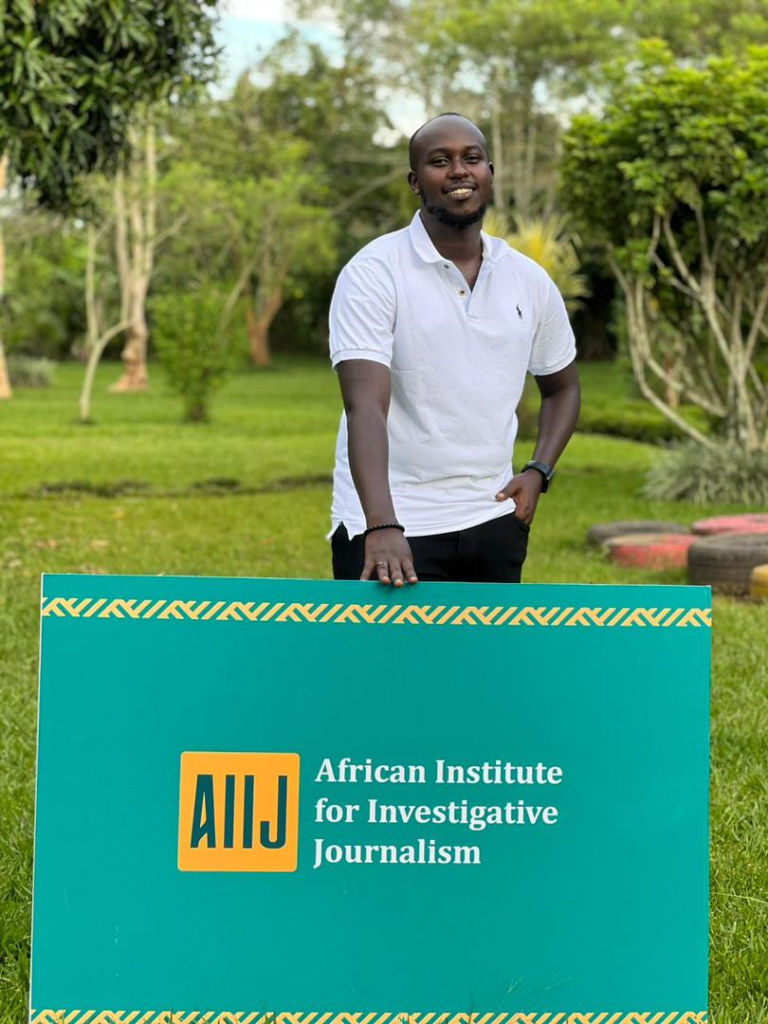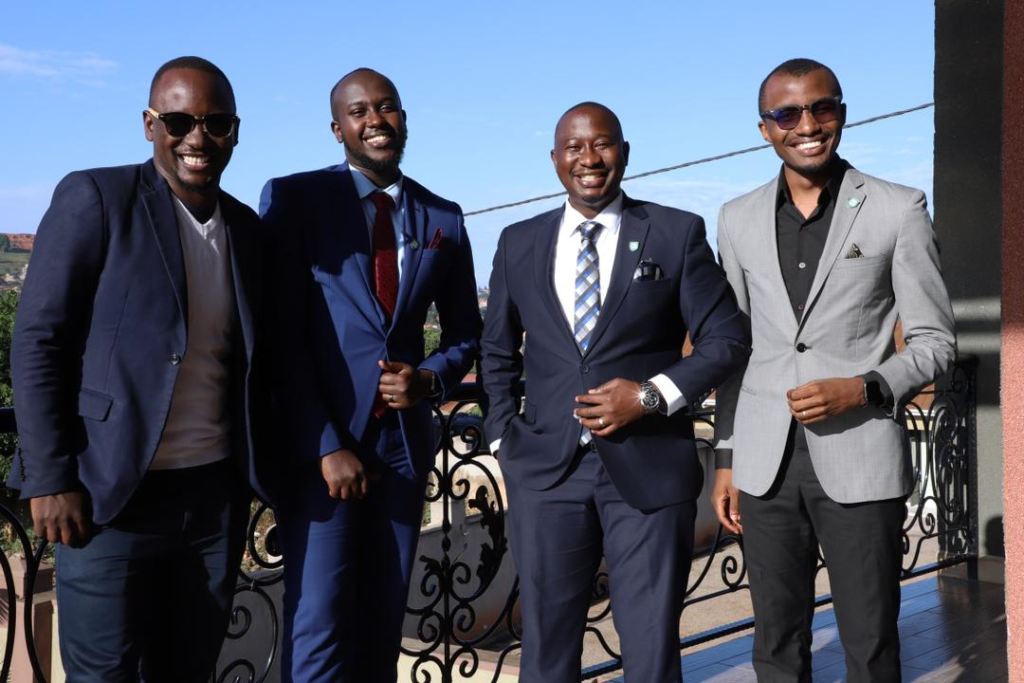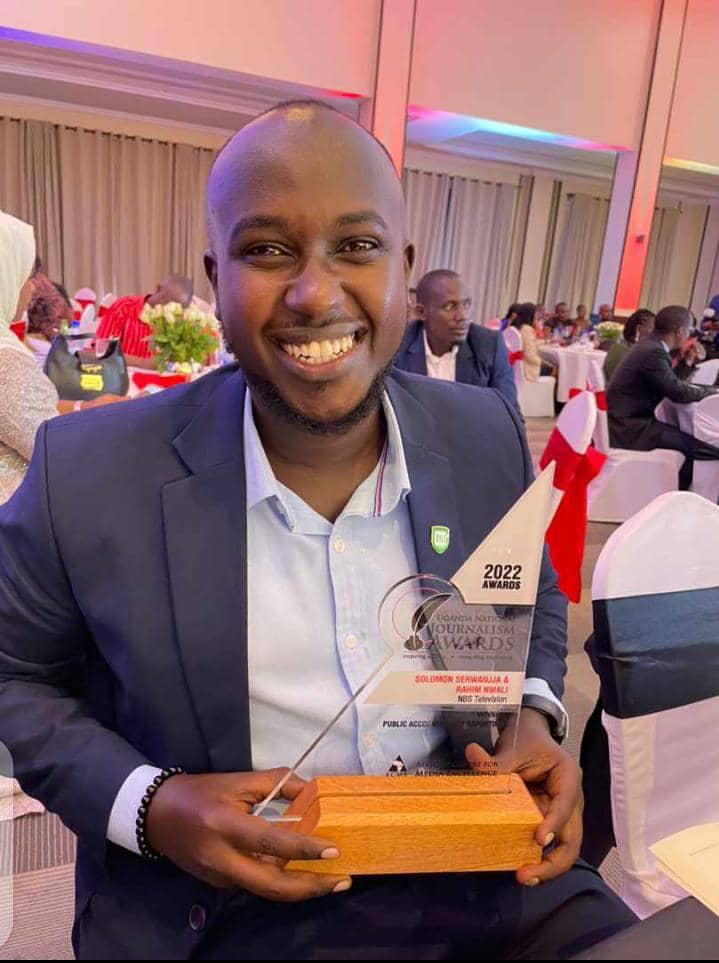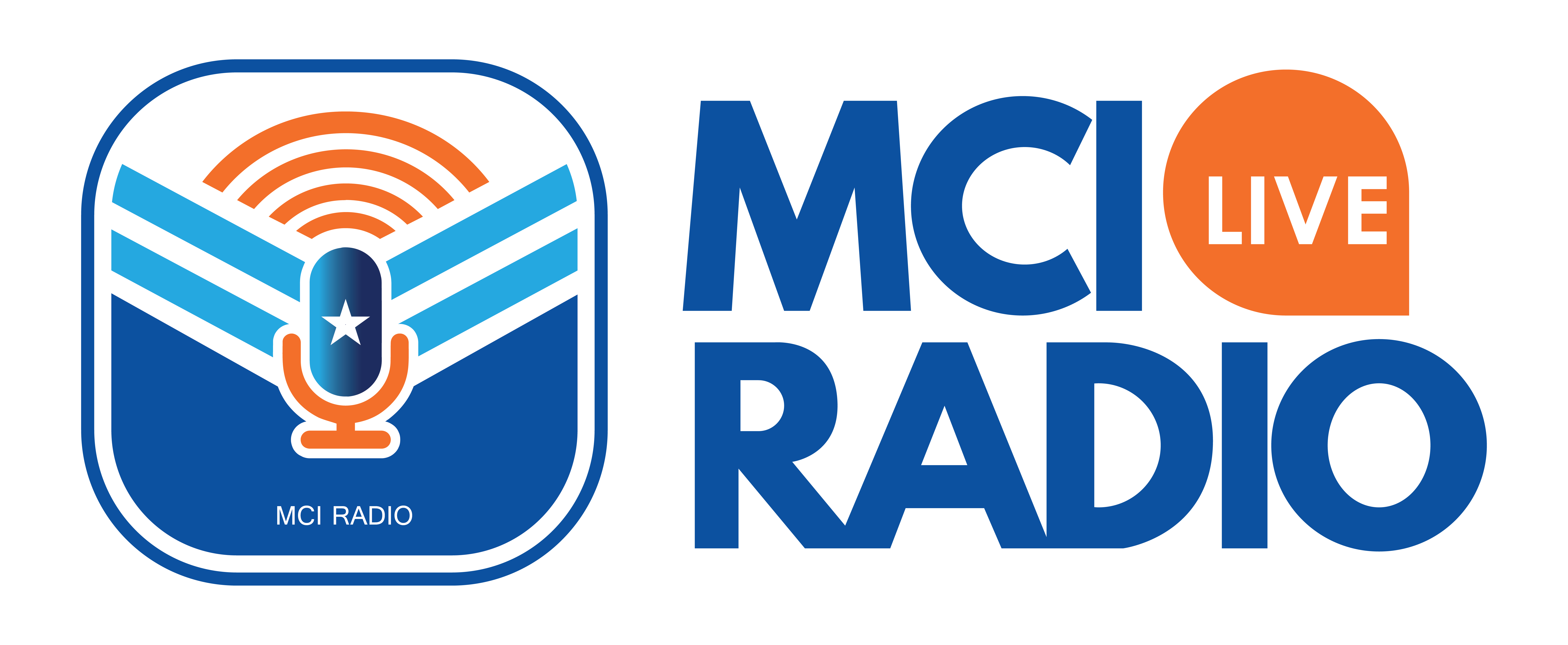Can you introduce yourself and share a bit about your background?
Sure, I’m Rahim Nwali, a former News anchor on Dream TV, Media challenge fellow of cohort 2020, and I am currently the Chief of Operations at the African Institute for Investigative Journalism
. My journey has extended to various horizons, encompassing roles in documentary production, direction, and co-hosting the Hard Questions show. Additionally, I lead the training and capacity building program at the institute
The African Institute for Investigative Journalism stands as more than an institution—it’s a nurturing ground for investigative journalism, a sanctuary dedicated to upholding the essence of true journalistic inquiry.
My journey into journalism began quite early, driven by a childhood fascination with television. I completed my Mass Communication and Journalism degree at St. Lawrence University, which solidified my passion for the field.
What motivated you to pursue a career in journalism, particularly focusing on investigative reporting?
I never thought I’d get into investigative journalism. But a story by Solomon in 2019 changed everything. When I started university, I met a smart and helpful guy named Ivan Darlington Mwebe. He asked me what I wanted to be, and I said I wanted to be a presenter like Douglas Lwanga. Ivan surprised me by suggesting I try working in the newsroom.
I wasn’t sure about the news, but Ivan got me curious. He told me to watch news like the BBC news . That got me interested in news reporting. I’m thankful to Ivan for that push.
Then came Solomon’s story. I had messaged Solomon before, but he didn’t have time to reply . When I saw his story, I was amazed. It made me rethink what I wanted to do. Investigative journalism could reveal things people don’t know, even if it meant taking risks.
I started watching investigative documentaries and got really into it. Investigative journalism became my passion. It can change conversations and show problems in society. It matters a lot.
I saw how Solomon’s story made a difference. I realized reporting on important issues is more valuable than I thought. I started believing in the power of journalism.
So, my journey changed because of Solomon’s story and Ivan’s advice. Now I’m a firm believer in how journalism can make the world better by sharing stories and making a difference in society.
How do you manage the financial aspects of investigative journalism, which can often be challenging?

Financial challenges are a reality, but the driving force behind investigative journalism is the desire to serve society and contribute to meaningful conversations. While money is necessary, the mission takes precedence. Many of us in this field understand that we’re here to make a difference, even if financial gains are limited.
Balancing a demanding career with family life can be difficult. How do you plan on maintaining equilibrium?
It’s indeed a challenge, but I’m fortunate to have mentors like Solomon Serwanjja who exemplify maintaining this balance. Learning from them, along with the support of finding a partner who understands my passion, helps me find harmony between my career and family responsibilities.
Could you share an instance from your early years that influenced your journey?
My formative experiences have significantly shaped my journey. Going back to my early years, my parents were avid followers of the news, always staying updated. Despite not having a formal education, I distinctly recall that our nightly routine included watching the news program “Agataliko nfufu” around 10 o’clock. This routine ingrained in me a habit of consuming news content, even though I didn’t necessarily develop an immediate passion for it.
Nonetheless, I found myself engrossed in the news world due to this upbringing. The consistent exposure to current events triggered something within me, an unspoken connection to the realm of news and information. This habitual engagement led to an unspoken association that linked the 10 o’clock news with a sense of importance and awareness. Even during breaks in the broadcast, discussions would arise around significant stories, and as a young observer, I absorbed these conversations.
Many wonder about the financial aspect of journalism. Could you shed some light on the financial viability of investigative journalism as a career? Do you have any supplementary income sources?
Honestly, that’s true. In journalism, money isn’t the main motivation, but we do need it to live. Despite the not-so-great pay, we believe we deserve it. It all comes down to why we’re here. We could’ve chosen a business course if money was the only goal. But we picked journalism because we have something more to offer.
It’s like a soldier going to battle, knowing it’s risky. They might not make it back home, but they still go because of a bigger purpose – protecting their country. Journalists are similar. They step into dangerous situations when others are running away. They’re the ones delivering news from the chaos. People wait for a journalist’s tweet or post to understand what’s happening.
Sure, we need money to survive, pay bills, and achieve our goals. But the passion for serving and fulfilling a purpose outweighs the chase for money. It’s what keeps us going even when we know the pay isn’t huge. We could have chosen an easier path, but we’re here for a reason.
So, while we might need to find other income sources or start small businesses, we can’t just quit. The drive to fulfil our purpose and provide a service that goes beyond money is what truly matters. It’s not just about me; it’s a feeling shared by many. From my earliest memories to now, I can’t just walk away from that story.
Reflecting on your educational journey, what were your formative years like? Did you ever find yourself in any memorable situations or trouble during your school days?
Yes , yes . Yes !
During my school years, I stood out as a group organizer. I was always forming small, passionate groups with friends who shared common interests. Even during the Media Challenge Fellowship, we formed a BRO CODE group that still holds strong. I used to play football and had a group of friends who would gather after study sessions, often causing a ruckus. I recall frequently getting into trouble for the noise.
One less positive memory was in senior four , when I got suspended . It was a weekend during prep time, and some students wanted to watch a game, even though the headmaster had banned it. My name ended up on the suspension list, though I wasn’t directly involved in organizing the protest. My mom had to come to school to sort things out.
Overall, I had a knack for forming and being part of various groups, which led to both enjoyable memories and a few challenging situations.

Did you immediately join the African Institute for Investigative Journalism (AIIJ) after completing your university studies?
I joined the institute when I was in my second year. Yes, so I did second year exams. when I was already employed at AIIJ
How do you handle the stress and demands that come with exposing important but sensitive issues?
Maintaining security is intense and crucial. I’ve taken steps to ensure personal and digital safety, letting certain people know my whereabouts and activities throughout the day. They serve as a safety net, aware of my movements and reachable in emergencies. This circle provides an extra layer of protection and perspective, which is invaluable.
My preference for privacy and small gatherings is an advantage. However, physical measures can only go so far; the rest is entrusted to a higher power. God’s protection is fundamental, especially in risky and hazardous situations. While we take precautionary steps, ultimately, the commitment to this path comes with an acknowledgment of its challenges and risks, contributing to the larger picture.
Could you share your insights about your time during the fellowship and, specifically, how the mentorship program contributed to your current journalistic path?
Being part of the fellowship was one of the best experiences for me. When I first joined, I didn’t know anyone. In the beginning, I was a bit quiet, trying to find my place among the group. But the second week was amazing. The camaraderie, the learning, the bond – I can remember every detail like it was yesterday. These relationships have stayed strong even after the fellowship ended. It’s heartwarming to see fellow members like Dan, El Shaddai, Onen, Nelson, Bella, Marion, and Rukia achieving their goals. The fellowship brought opportunities, learning, and above all, a sense of family.
Some careers, like mine, were born from the fellowship. I remember Nelson pushing Onen to do his first live comedy show, which gave birth to the Andrew Onen big stage that we all enjoy now. The fellowship had a significant impact, even leading to initiatives like the Debunk Media Initiative.
I can’t express enough gratitude for the mentorship program within the fellowship. It’s a major reason for where my career is today. During those days, I used to imitate Solomon, one of our mentors. Mimicking people has always been a little talent of mine. It’s something fun I enjoy doing. I remember one day hearing Solomon’s news intro, and I mimicked it. People liked it, and it became a thing.
This connection came full circle when I met Solomon in person at MCI. Our stories seemed intertwined. I expressed my wish to have him as a mentor, and surprisingly, it became a reality. I pitched a story, we started meeting, and before I knew it, I was studying at the Institute in my second year.
In a nutshell, the fellowship was a defining experience, creating lasting relationships, sparking career paths, and connecting me with mentors who’ve had a profound impact on my journey.
Is Rahim currently dating?
Yes. But I’m afraid I won’t go beyond that. Hahaaaaa
When it comes to spending quality time, do you prefer indoor activities or outdoor adventures for an ideal date?
I’m really an indoor person.
We all have items that hold sentimental value. Is there a possession you cherish deeply and feel a strong attachment to?
I think my photo album and my phone because my phone has you know, I keep my money on my phone. I sometimes go through my phone gallery and see pictures and I’m like, wow. So it’s something that I treasure . I think every 15 minutes I’m checking my phone unless I’m really extremely busy so yeah, my phone. My photo album has my pictures as a baby. My parents, I think, yeah. You know, that gives me those memories
Is there a nickname you’re commonly known by among friends, family, or colleagues?(pet name)
Yes, my friends and family call me Isiko .
And it’s something that I got because of playing football because Isiko is a footballer. And so that is how I got the name. And up to date. Even when I play football, they still come with the same name.
Life is filled with joyous moments. Could you share a few instances that stand out as the happiest in your life so far?
I think quite many but I can put my mind to one. When I won the award; best investigative story of the hour with Solomon. Wow. Feels like it’s yesterday. It quite meant a lot to me, was my first national award. And I won two awards that night. public accountability reporting award of their and investigative story of the year . and that day to me was so memorable
Where do you see yourself in about five years from now ?
So I did a story. I produced and directed a story about the deadly waters of Kasese by an upcountry journalist. And that story had a great impact. And like my DED already says that, you know, we do these stories not for them to leave or be on front pages of the papers where we publish them, but rather to impact societies where we come from. And so that for me was like that moment in my career where I sat back and introspected about my journey and got a little bit satisfied about my role in the story because of the impact it created in Kasese. The story won an award in England and the reporter received it, he was invited to London.
And for me, it went back to my vision and purpose of why I am here. Those stories, those are the stories that I hope to do the Ghosts of Tungamo
It’s not more about the individual me and my achievement as me, but my contribution to society and to journalism. What will the next generation talk about me and what will they say was my contribution? And so I look forward to having so many of those moments, so many of those stories, you know, working with great people, great journalists to really impact society, work with like-minded individuals, form consortiums, work with everybody in our individual capacities to just contribute to the people that we serve.
In summary, Rahim’s journey embodies courage, authenticity, and unwavering resilience. A conversation with him is truly inspiring, motivating others to carve their path in journalism. have a nice read .










